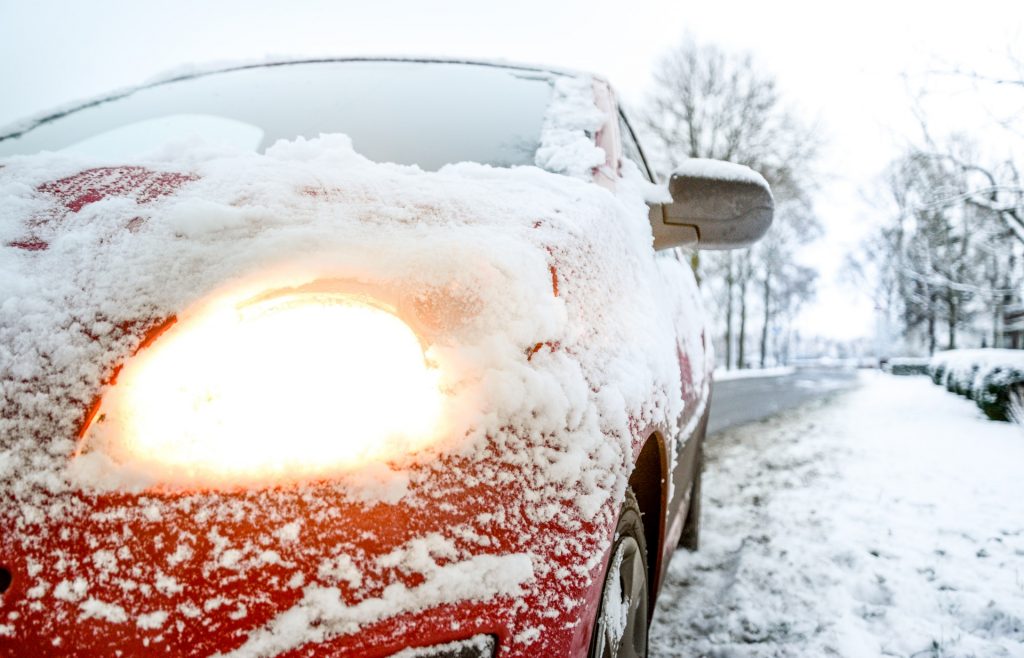Keep your car running smoothly all winter long with these winter car tips. From low tire pressure to frozen fuel lines to road salt damage, winter can take its toll on your vehicle. Here are some winter car tips to prevent long-term damage.

Winter Car Tips You Need to Do
Swap out regular tires for winter tires. Snow or not, if you live in an area where temperatures regularly fall below 45 degrees, winter tires are recommended. They’re made to give you better traction while turning or stopping on the cold pavement. At the very least, make sure your tires are in good shape with lots of treads.
Check your tire pressure weekly. Driving on underinflated tires can cause them to wear down prematurely and lose traction on icy or slippery surfaces. Your tires can lose a pound of pressure with every 10-degree drop in temperature so stay on top of it by checking often.
Keep your backup fuel tank half full. During winter weather, it’s a good idea to keep at least half a tank of fuel in the vehicle in the event of an emergency or if you get stuck in the snow and need to wait for rescue. And make sure that your vehicle tank is never below half full. That extra fill up can make a huge difference if you are stuck in the snow.
Add a protective layer to protect the exterior of your vehicle. A coat of polymer wax can create a barrier against road salt, grime, snow, sleet and more. Add in a high-pressure car wash after a winter storm to rinse away buildup in hard-to-reach areas such as wheels, wheel wells, and underbody.
Protect your windshield wipers. If you park outdoors, leave the wipers in the raised position to prevent them from freezing to the windshield. Never use your wiper blades to remove ice, snow or frost from the windshield as this can damage the wipers. Instead, make sure to invest in an ice-scraper.
Check your battery. It’s often more difficult for a battery to operate in cold weather than it is for a battery to operate in warm weather. As a result, a battery that’s merely weak during the summer could turn into a dead battery during the winter. Have a volt test performed on your battery before winter starts to make sure it’s still in good working order.
Check your antifreeze and wiper fluid levels. Before you head into winter, make sure your car isn’t low on coolant and that there aren’t any leaks in your vehicle’s engine that could cause coolant to drain out.




Great post! Thanks! Winter is fast approaching so my family and I are going to take the precautions and follow these ideas to make our drive safely with the snow. If anyone knows of any other ideas to prepare for winter, please share them with me.